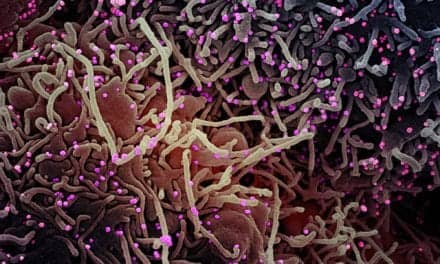A phase 3 study of Tecentriq (atezolizumab) and Avastin (bevacizumab) plus chemotherapy (paclitaxel and carboplatin) met its co-primary endpoint of progression-free survival (PFS) in patients with people with advanced non-squamous non-small cell lung cancer (NSCLC). Results of the Phase III IMpower150 study were announced by manufacturer Genentech (part of Roche Group).
Initial observations for the co-primary endpoint of overall survival (OS) are encouraging, according to Genetech. The company emphasized that data are not fully mature and the next OS analysis is expected in the first half of 2018.
Mpower150 is a multicenter, open-label, randomized, controlled Phase III study evaluating the efficacy and safety of Tecentriq in combination with chemotherapy (carboplatin and paclitaxel) with or without Avastin in people with stage IV non-squamous NSCLC who had not been treated with chemotherapy for their advanced disease. It enrolled 1,202 people, of which those with ALK and EGFR mutations were excluded from the primary intention-to-treat (ITT) analysis. People were randomized (1:1:1) to receive:
- Tecentriq plus carboplatin and paclitaxel (Arm A), or
- Tecentriq and Avastin plus carboplatin and paclitaxel (Arm B), or
- Avastin plus carboplatin and paclitaxel (Arm C, control arm).
During the treatment-induction phase, people in Arm A received Tecentriq administered intravenously at 1200 mg in combination with intravenous infusion of carboplatin and paclitaxel on Day 1 of a 3-week treatment cycle for 4 or 6 cycles. Following the induction phase, people received maintenance treatment with Tecentriq (1200 mg every 3 weeks) until loss of clinical benefit or disease progression.
People in Arm B received induction treatment with Tecentriq (1200 mg) and Avastin administered intravenously at 15 mg/kg in combination with intravenous infusion of carboplatin and paclitaxel on Day 1 of a 3-week treatment cycle for 4 or 6 cycles. People then received maintenance treatment with the Tecentriq Avastin regimen until disease progression (Avastin) or loss of clinical benefit/disease progression (Tecentriq).
People in Arm C received induction treatment with Avastin administered intravenously at 15 mg/kg plus intravenous infusion of carboplatin and paclitaxel on Day 1 of a 3-week treatment cycle for 4 or 6 cycles. This was followed by maintenance treatment with Avastin alone until disease progression.
The co-primary endpoints were PFS, as determined by the investigator using Response Evaluation Criteria in Solid Tumors Version 1.1 (RECIST v1.1), and OS. This analysis of the IMpower150 PFS endpoint was only statistically powered to demonstrate a comparison between Arm B versus Arm C.
The primary analysis of the co-primary PFS endpoint in IMpower150 was assessed in two populations: all randomized people without an ALK or EGFR genetic mutation (intention-to-treat wild-type) and in a subgroup of people who had a specific biomarker (T-effector “Teff” gene signature expression). IMpower150 met its PFS co-primary endpoint per study protocol for both populations assessed.










